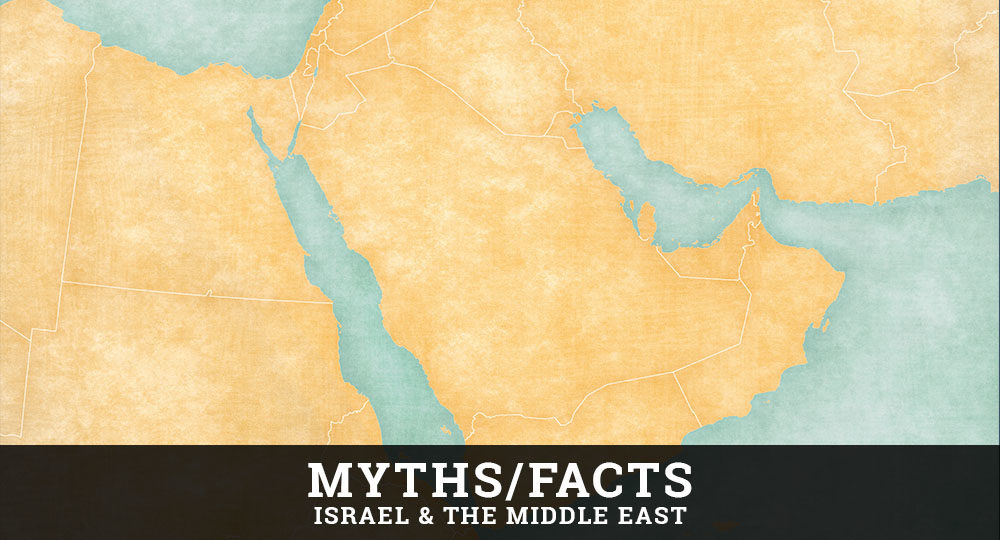Myths/Facts : Israel & the Middle East Jan/Feb 2005
Myth: Israel is a theocracy and should not be a Jewish State.
Fact: It often makes people uncomfortable to refer to Israel as “the Jewish state” because it suggests a theocracy, and therefore the demise of Israel as a Jewish state is viewed by some people (even in Israel) as a positive development.
Israel is not a theocracy. However, it is governed by the rule of law as drafted by a democratically elected parliament. It is informed by Jewish values and adheres to many Jewish religious customs (such as holidays), but this is similar to the United States and other nations that are shaped by the Judeo-Christian heritage and also have expressly religious elements. For example, church-state separation in the United States does not preclude the recognition of Christmas as a holiday.
Israel has no state religion, and all faiths enjoy freedom of worship. Yet it is attacked for its Jewish character, whereas the Arab states that all have Islam as their official religion are regarded as legitimate.
The Jewish people are a nation with a shared origin, religion, culture, language, and history. And why shouldn’t the Jewish people have a state? No one suggests that Arabs are not entitled to a nation (and they have not one, but twenty-one) of their own or swedes or Germans, or that Catholics are not entitled to a state (Vatican City) headed by a theocrat (the pope). To suggest that Zionism, the nationalist movement of the Jewish people, is the only form of nationalism that is illegitimate is pure bigotry. It is especially ironic that the Jewish nation should be challenged, given that Jewish statehood preceded the emergence of most modern nation-states by thousands of years.
It is also not unusual that one community should be the majority within a nation and seek to maintain that status. In fact, this is true in nearly every country in the world. Moreover, societies usually reflect the cultural identity of the majority. India and Pakistan were established at the same time as Israel through a violent partition, but no one believes these nations are illegitimate because one is predominantly Hindu and the other has a Muslim majority, or that these nations shouldn’t be influenced by those communities (e.g., that cows in India should not be treated as sacred).
In the United States, a vigorous debate persists over the boundaries between church and state. similar discussions regarding “synagogue and state” are ongoing in Israel, with philosophical disagreements over whether Israel can be a Jewish and a democratic state, and practical arguments over sabbath observance, marriage and divorce laws, and budgets for religious institutions.
Nevertheless, most Jews take for granted that Israel is, and must remain, a Jewish state. Arab citizens also understand that Israel is a Jewish state and, while they might prefer that it were not, they have still chosen to live there (nothing prevents Arabs from moving to any of the 180-odd non-Jewish states in the world). Both Jews and Arabs realize that if Jews cease to be a majority in Israel, Israel will no longer have a Jewish character or serve as a haven for persecuted Jews; and that is one of the elements underlying peace negotiations between Israel and the Palestinians.
From Myths & Facts Online—A Guide to the Arab-Israeli Conflict by Mitchell G. Bard www.JewishVirtualLibrary.org.
Used by permission.







